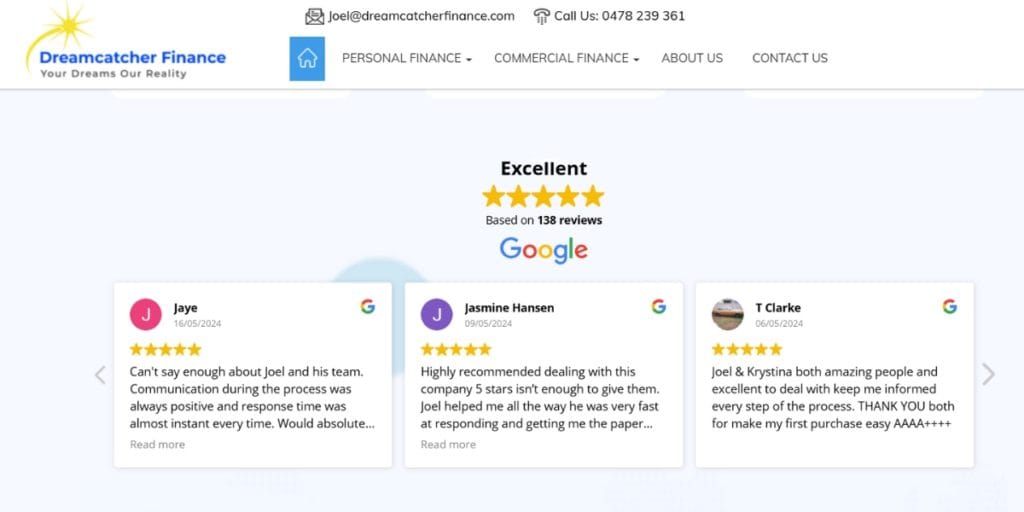How Business Acquisition Loans Can Supercharge Your Entrepreneurial Dreams
If you’ve ever visited Sydney, Australia, you’ve probably seen the Sydney Harbour Bridge. This iconic bridge, which opened in 1932, stretches 1,149 meters and connects the northern and southern parts of the city. It’s nicknamed “The Coathanger” because of its arch shape. This marvel demonstrates human creativity and the power of bold ideas.
Like the Sydney Harbour Bridge, a business acquisition loan can be a crucial step in your entrepreneurial journey. Imagine standing on one side of a wide river, representing where you are now—full of potential but needing a way to reach your dreams.
On the other side is the thriving business you wish to own, where your vision and hard work can come true. A business acquisition loan can be that bridge to your success. It gives you the support and resources to move from ambition to achievement, connecting you to new opportunities and making the impossible possible.
What is a Business Acquisition Loan?
A business acquisition loan helps you buy an existing business, unlike personal or home loans used for individual needs or real estate purchases. Lenders evaluate the business’s financial history, your business plan, and your ability to manage it. This loan has unique requirements and terms due to the risks and opportunities of buying a business.
Common uses:
- Buying an established business
- Purchasing a franchise
- Acquiring a competitor to increase market share
- Expanding your existing business by adding another location or product line
The benefits include:
- Access to capital
- The ability to buy a profitable business
- Potential for a quick return on investment
- Opportunity for business growth or diversify your business portfolio
Knowing these differences and benefits helps you pick the right loan and succeed in your new business venture.

How Do You Finance a Business Acquisition?
Securing a business acquisition loan is just one way to finance buying a business. You can explore several other methods to find the one that best suits your needs.
Key considerations:
- Seller Financing: Sometimes, the seller might finance part of the purchase price, allowing you to pay them back over time. This financing option can be more flexible but might not cover the entire purchase price.
- Personal Savings: Using your personal funds reduces the need for loans and interest payments. It keeps you debt-free but risks your personal financial security.
- Investors: Bringing in investors can provide the necessary funds in exchange for equity or a share of the business profits. This option can provide significant funds, but they will want a return on their investment, which they call equity financing.
Steps to Choose the Best Financing Solution
- Evaluate your financial situation: Understand your financials and how much you can invest.
- Assess the business: Look at the financial track record and future potential of the target company you want to buy.
- Compare options: Consider the pros and cons of each financing method.
- Seek professional advice: Talk to financial advisors to help you make an informed decision.
- Make a Decision: Choose the option that best fits your needs and goals.
By exploring and comparing these options, you can find the best way to finance your business acquisition and set yourself up for success.
How Does an Acquisition Loan Work?
Now that you understand the various ways to finance a business acquisition. Let’s now dive deeper into how it specifically works. Knowing the details of the loan process can help you prepare and increase your chances of approval.
The application process
1. Application: First, you must fill out the relevant forms and provide detailed information about the business you want to buy.
2. Approval criteria: Lenders will assess the business you plan to acquire and your financial situation.
Here are the key criteria:
- Financial health of the business: Lenders will examine the financial statements from the past two years, including profit and loss statements and balance sheets. These reports show if the business is making money and is in a stable financial position. Lenders also consider if there’s enough demand for the product or service and if the business is priced fairly.
- Applicant’s Profile: Lenders will evaluate your experience in the same or a related industry. They also check your credit history and assets (like property and cash). Sometimes, they also require an upfront deposit to show your commitment.
Your ability to sustain and grow the business is super crucial for approval.
Type of Loans
- Secured business loans: These loans are backed by collateral, such as property or assets. They usually offer lower interest rates but come with the risk of losing the collateral if you default.
- Unsecured business loans: These don’t require collateral. They have higher interest rates and are harder to get, but don’t risk your assets.
Typical Repayment Terms
Repayment structures for business acquisition loans can vary, but they generally include:
- Fixed monthly payments: You pay a set amount each month, which covers both interest and principal.
- Variable payments: Payments can change based on interest rates or business revenue.
- Balloon payments: Smaller regular payments with a large final payment at the end of the loan term.
Common pitfalls in business acquisition financing
Many business acquisition loans fail due to issues with the applicant’s profile rather than the business itself. Trust me, I know from experience. Lenders are often put off by applicants more interested in passive income than actively growing the business. They probably hate the idea of a “Lazy Larry” running a business in his pyjamas, focusing more on maximising nap time than working to make the business successful.

How Much Deposit Do You Need for a Business Loan?
Now that you understand how an acquisition loan works let’s talk about the deposit required to get such a loan. Knowing how much deposit you need can help you plan better.
Average deposit requirements in Australia
In Australia, the average deposit for a business acquisition loan typically ranges from 20% to 30% of the sale price of the business. For example, if you’re looking to buy a company valued at $500,000, you might need a deposit of $100,000 to $150,000.
Here are several factors that can affect your deposit amount:
- Loan type: Secured loans, which are backed by collateral, might have lower deposit requirements compared to unsecured loans.
- Lender policies: Different lenders have varying policies and criteria for deposits. Some might be more flexible, while others could have stricter requirements.
- Business value: The value and financial health of the business you’re buying also play a role. A more profitable and stable business might need a lower deposit.
If you need to save or secure a deposit, here are some strategies to consider:
1. Using personal savings: Set aside a part of your monthly income. This strategy might take time, but it’s a straightforward way to build up your deposit. Think of it as collecting puzzle pieces to complete a beautiful picture over time.
2. Seeking additional investors: Find investors willing to back your business acquisition. These could be family, friends, or external investors interested in your business plan.
3. Negotiating with lenders: Some lenders might be open to negotiating the deposit amount. This approach could work with a strong business plan and credit history. It’s worth discussing your situation with them.
Tips for Securing a Business Acquisition Loan
Getting a business acquisition loan can be tough, but these tips can help you improve your chances:
Preparing a solid business plan
Make sure you have a clear and detailed business plan. It should explain your goals, strategies, and how you will manage and grow the business you want to buy. Lenders want to see that you have a strong plan for success.
Ensuring strong financial records
Keep your financial records in good order. These records include both your personal finances and the finances of the business you’re buying. Make sure profit and loss statements, balance sheets, and cash flow statements are accurate and up-to-date. And make sure to follow up on unpaid invoices. These records will show the lenders how the business is stable and profitable.
Improving personal and business credit scores
A good credit score helps a lot. If your credit score is low, work on improving it. Don’t get caught in ‘debt-ception’. Pay off debts, avoid missing payments, and keep your credit card balances low. A higher credit score makes you more attractive to lenders.
Seeking advice from professionals
Get help from financial advisors or accountants. They can assist you in preparing your business plan, organising your finances, and improving your credit score. Their financial advice can make the loan process easier and more successful.

Sam’s Café Dream
Let me tell you about my friend Sam. She had always loved this local café on the CBD’s main street and dreamed of owning it. The café had a loyal customer base and was a great spot, but it needed some work. Sam saw this as a great opportunity but didn’t have enough money to buy it outright.
Sam knew she needed a proper business plan, so she gathered all her ideas for renovations and strategies to attract more customers. She also gathered the café’s financial reports from the last two years, which relieved her as it was very profitable. She also gathered her own financial information, showing her good credit score and all her tangible assets.
However, what gave Sam an advantage was her over ten years of experience as a manager at McCafe. This experience highlighted her ability to run the café effectively.
The process was simple. Sam reached out to an online lender, and they helped her through every step.
Sam knew there were risks. The café needed renovations, which meant extra costs. She could struggle with repayments if the renovations didn’t attract more customers. Also, if the market changes or new competition opens nearby, the café’s income could drop. But this didn’t stop her.
With the loan, Sam acquired the café and made her planned upgrades. Within a year, the café’s revenue increased by 30%, becoming a community favourite.
Sam’s story shows how important it is to be prepared and to choose the right lender. If you need help with a business acquisition loan, talk to the experts at Dreamcatcher Finance. They can help make your business dreams come true.
Click here to here to fill out their form.
Closing Thoughts
Securing a business acquisition loan is a key step towards owning your dream business. Remember to prepare a solid business plan, keep your financial records in order, and improve your credit score. By doing so, you’ll increase your chances of loan approval and move closer to your goals.
For expert guidance, talk to a trustworthy lender like Dreamcatcher Finance. They specialise in helping people achieve their financial dreams with the best loan options. Just like the Sydney Harbour Bridge connects the city, Dreamcatcher Finance can help you bridge the gap to your entrepreneurial dreams. Learn more about their services and start your journey today by visiting Dreamcatcherfinance.com.



